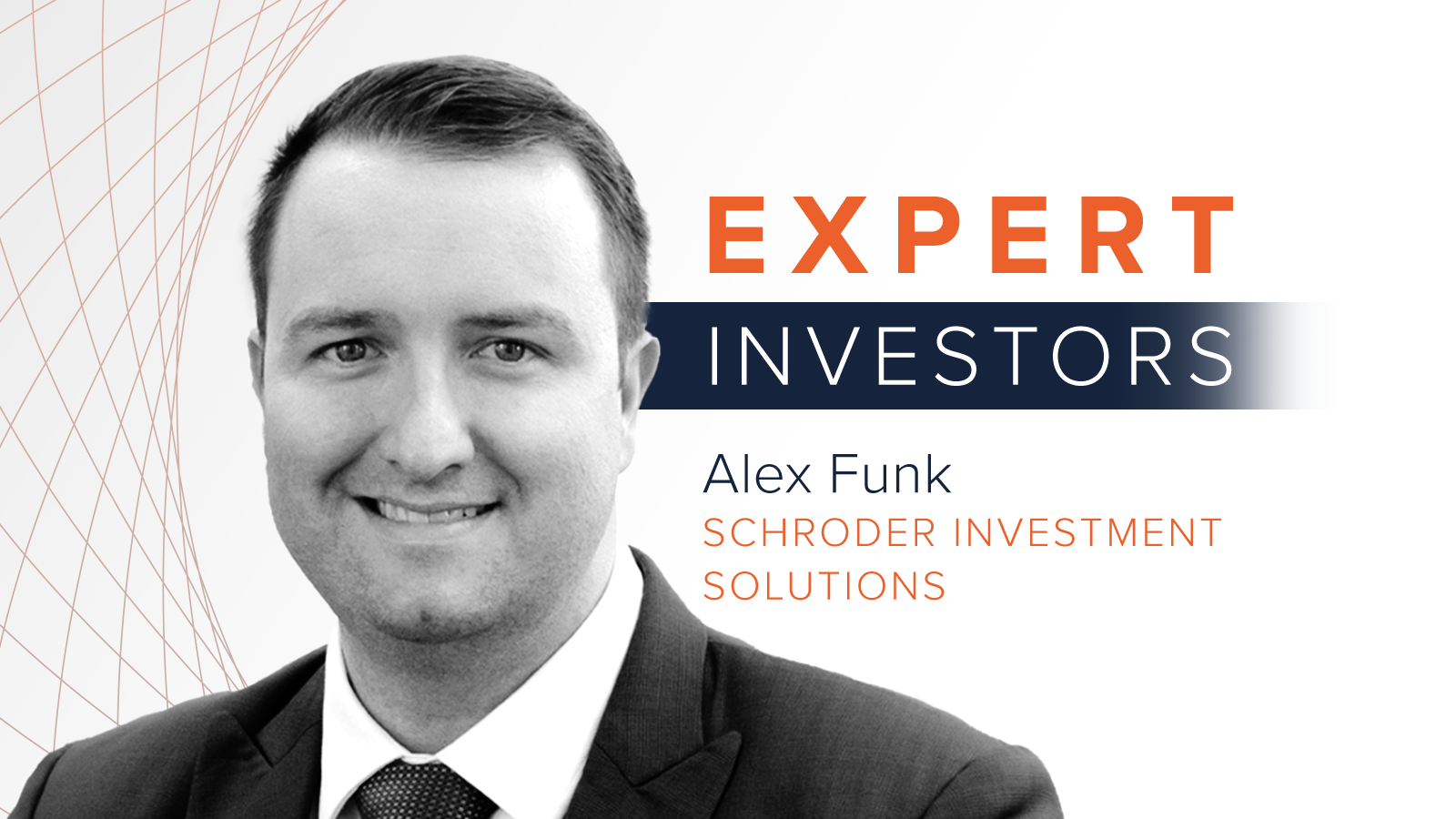The intersection of active management with the ETF structure is “very interesting” and could spell a more selective route than the current screen-and-capture approach of thematic ETFs, according to Alex Funk, CIO of Schroder Investment Solutions.
Speaking to ETF Stream, Funk said innovation in the beta space is “broadly covered”, however, active management could represent an attractive proposition in ‘index-plus’ broad market exposures and granular themes.
New launches could “stress test ETFs a little more”, he said, by having a fund manager allocating across the entire value chain of a theme such as the energy transition.“
In that space, we have typically invested in active managers on a global basis. If there are more active-type solutions that come out within ETFs, that could become interesting. The thematic ETFs I have seen to-date focus on a theme and screen for those companies and give you the access.
What they do not bring you is the analyst approach, the qualitative, the soft components, at least not the ones I have seen.”
Predominantly passive
For now, the firm’s ETF usage is “purely passive”, with ETFs having “a prominent position” for capturing beta within their blended fund of funds range.
“Certain markets will be more covered by analysts due to coverage and size of allocation so the inefficiency premia becomes less,” Funk said.
“We did an assessment across regions and asset classes and those with lower efficiency premia, we invested in passive ETFs to give us beta exposure.
In other markets, such as emerging markets, small caps and alternatives, we would use active managers.”
However, he noted ‘index-plus’ or smarter optimisation active ETFs covering broad markets are on the radar and could challenge traditional active funds, as asset managers question whether the ETF structure is a more cost-effective and faster route to market.
Platform plague
Funk also highlighted the platform issue in the UK as a key structural barrier for many portfolio provides.
“Although we love ETFs, they are limited creatures on platforms,” Funk said.
“Today, we are on 14 platforms in the UK and three in the Channel Islands. Only five of those are able to facilitate ETFs, which is difficult because we cannot have that inconsistency for client experience.”
Another challenge is the costs involved in accessing ETFs through platforms, which have brokerage costs, implementation fees and minimum deal sizes which do not exist when trading unit trusts.
These costs risk “chewing away at the marginal performance” of clients, especially those with smaller account sizes.
For this reason, the firm only uses ETFs within its fund structures, where trades happen at larger aggregate values and investors get the unit price and NAV, rather than numerous execution costs.
This article first appeared in ETF Insider, ETF Stream's monthly ETF magazine for professional investors in Europe. To read the full edition, click here.



